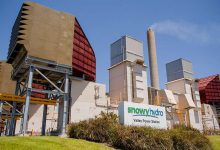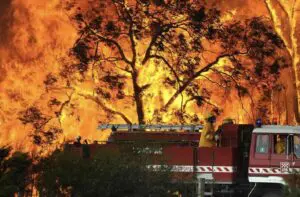Credit ratings agency Standard and Poor’s has warned that $600 million in taxpayer funding to help it build a gas plant in Kurri Kurri may not solve the financial pressures being faced by the government-owned generator and retailer.
Snowy Hydro, like all other generators, is suffering from falling revenues caused by the slump in wholesale electricity prices, and in its case increased spending on the multi-billion Snowy 2.0 expansion project. These pressures led to a downgrade in the company’s credit rating last year.
In a new guidance note issued on Thursday, S&P says the decision of the Morrison government to inject an additional $600 million to allow Snowy to build a new 660MW peaking gas plant in Kurri Kurri may not be enough to relieve balance sheet pressures ,and the company still faces significant headwinds.
It says ongoing government support will be necessary given the tough operating environment, with wholesale electricity prices predicted to fall further over the next few years – driven in part by surging investment in new wind and solar projects – and the cost of gas expected to push higher.
“As a peaking generator and seller of capacity and firming contracts, Snowy Hydro is marginally better positioned than some of its peers to take advantage of potential volatile market conditions,” S&P said.
“Still, a fall in wholesale and retail prices and subdued forward pricing conditions would likely weigh on EBITDA through to 2023 compared with our prior estimates.”
Market analysts have warned that Snowy Hydro would require an injection of new equity from the federal government, its sole owner, to build the Kurri Kurri gas plant, as much of the company’s cash reserves were being spent on the construction of the multi-billion dollar Snowy 2.0 project.
The decision to fund the Kurri Kurri project has been panned by a significant cross-section of the energy market, with leading industry groups, market regulators and analysts questioning whether the 660MW project was necessary and whether it will ever be profitable.
The Australian Energy Council said that the Morrison government was distorting the energy market through its decision to intervene and it was hurting the confidence of other market players to make investments in new projects.
Chair of the Energy Security Board, Kerry Schott, has said that she did not think the project would stack up financially, as it would need to compete in an energy market being reshaped by the emergence of lower cost wind, solar and battery storage technologies.
Snowy Hydro intends to operate the Kurri Kurri gas plant as a ‘peaking’ generator, operating only when wholesale electricity prices are unusually high. In an Environmental Impact Statement issued by Snowy Hydro to NSW government planning authorities, the company said that it expects the Kurri Kurri plant could operate as little as 2 per cent of the time.
S&P held back from making an assessment of the likely commercial viability of the gas plant proposal, but noted it would need to be evaluated “in light of the growth of renewables in the market and the marginal cost of the plant relative to other alternatives.”
Last year the ratings agency downgraded Snowy Hydro’s credit rating from A- to BBB+ status as a result of deteriorating market conditions.
At the time, S&P warned that Snowy Hydro was at risk of falling into a category of ‘junk’ credit ratings, had it not enjoyed the financial backing of the federal government.








